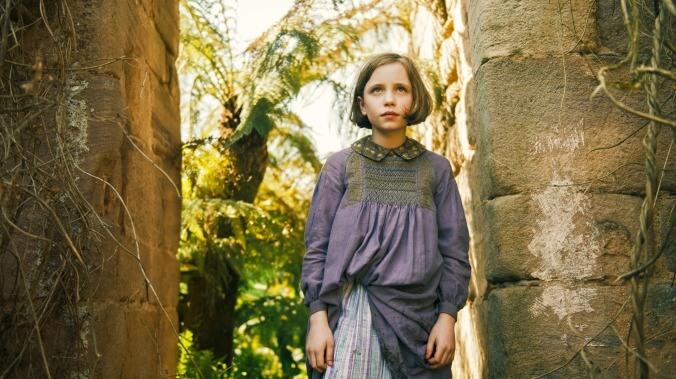Interchangeable sad boys dim the magic of The Secret Garden


India, 1947. A tiny voice whispers, “Jemima, can you sleep? Are you scared? Don’t be. I shall tell you a story.” A match flickers and dips into a bowl, bringing light to the darkness. What follows is a timely escape into a wonderful world for protagonist and audience alike.
Based on Frances Hodgson Burnett’s oft-adapted 1911 novel of the same name, The Secret Garden is a film of coping and progression. After the death of both her parents, 10-year-old Mary Lennox (Dixie Egerickx) is dispatched to live with her nearest relative, the grim Uncle Craven (Colin Firth), who dwells in his expansive estate on the Yorkshire moors. There, she finds a secret garden and the comforting magic therein. Director Marc Munden is well-versed in such tales, having previously helmed the much darker but equally sincere Bildungsroman drama Some Dogs Bite a decade ago.
In lighthearted but slightly Grimm fashion, Mary struggles with both her personal loss and the trauma of growing up; fantasy elements emphasize the themes in vivid color. The film hinges upon innocence and its trajectory. As such, casting is paramount. Egerickx steps up with zeal, all eyes and pouts. Mary insists that she’s not a child, but the actor’s insolent stares and wide-eyed wonder betray the truth. The movie simply wouldn’t work without her delivery and presence. Meanwhile, Firth recalls a more manic Mr. Banks of Mary Poppins. His stoicism grounds every fanciful performance around his own, as Mr. Craven’s no-nonsense coldness melts away to reveal a wounded core. Spoken just above a whisper, his closing epiphany unveils the story’s true maxim: The growth of children is the growth of all in their orbit.
Munden displays a flexible discipline with the camera, underlining the emotional textures from moment to moment, while the color palette alternates from warm to cool tones. Sometimes, the framing is tight and intimate, to emphasize vulnerable circumstances. Other times, expansive panoramas drown Mary in a sea of orphaned children or the shadowed hallways of the manor that threaten to swallow her whole like the corridors of Crimson Peak. Through cinematographer Lol Crawley’s lens, Mary’s journey from harsh reality to the fertile oasis of her imagination is as seamless as Dorothy opening the door from sepia-toned Kansas to candy-colored Munchkinland.
There are no Munchkins in this garden. But there, Mary finds freedom and secrets, both essential to the art of growing up. It’s a far cry from the frigid interiors of her uncle’s manor, though gorgeous location shooting immerses the viewer in both worlds. Within each, she befriends fellow loners and misfits, beginning with Colin (Edan Hayhurst), the only son of Mr. Craven, who is bedridden and woefully isolated. The cousins bond over their dead mothers (“Well then, we both know tragedy, don’t we?”), and, through that, unpack their own grief and interrogate their understanding of the deceased. Later, Mary crosses paths with Dickon (Amir Wilson), son of one of the manor’s service staff, who’s lost his father. Though these two boys are respectively unique on the surface—Colin chronically ill, Dickon a person of color—neither is particularly well developed. They are but male echoes of Mary.
As the three youths convene for their daily meeting of The Tragedy Club, the pacing slows to a crawl, and no phantasmic flora or fauna can distract from the third act’s narrative slump. It might be tolerable if the trio were distinguishable from one another, but Colin and Dickon fuse with Mary into one sobering Lost Boys avatar. Still, Mary’s arc (and thus, that of the boys) runs from neglected babe in the woods to a learned student of the human condition—a faithful translation of the source material’s themes. The break in stride is forgivable, even if the flat supporting child characters are not. As a result, The Secret Garden is a mid-tier adaptation, though one with heart and soul.